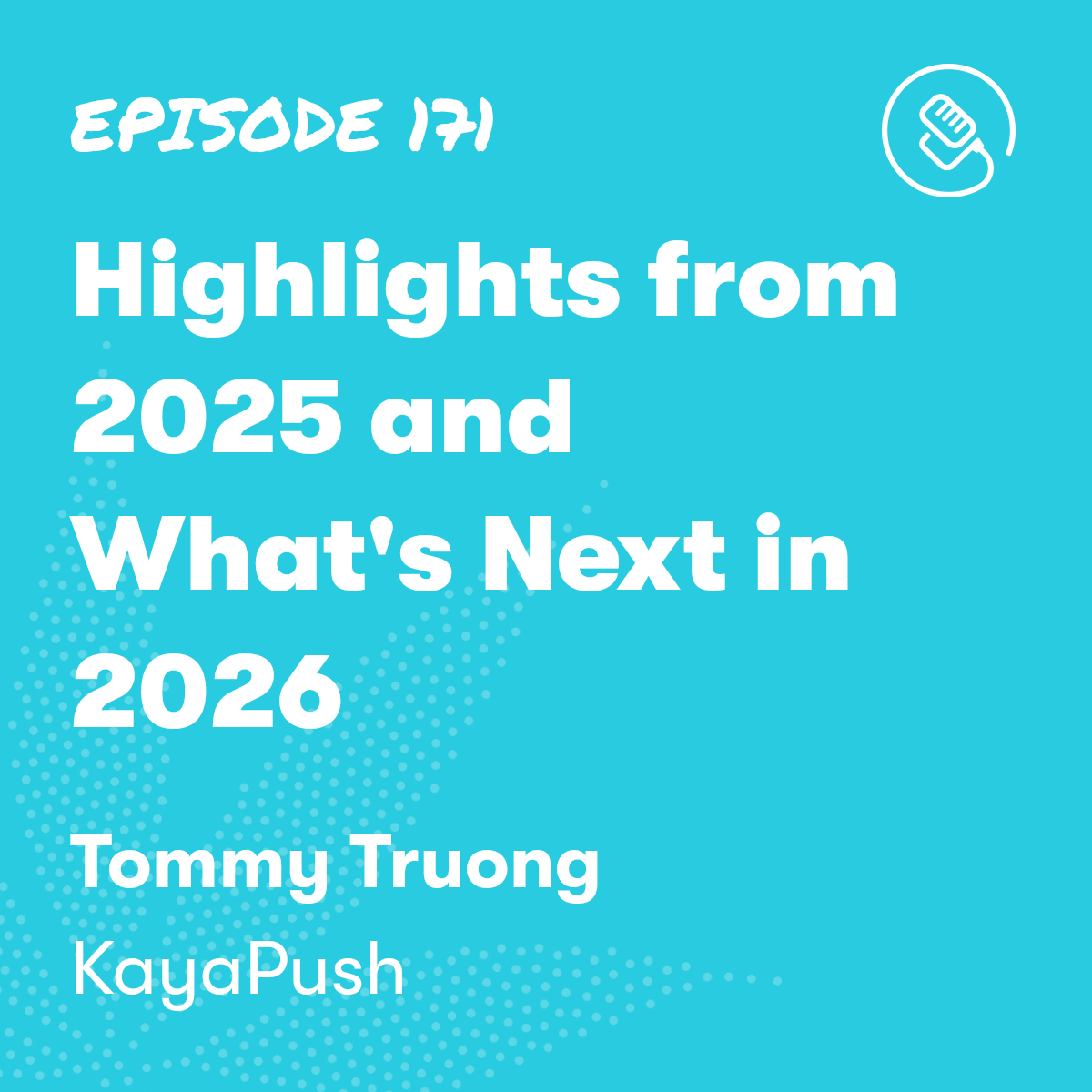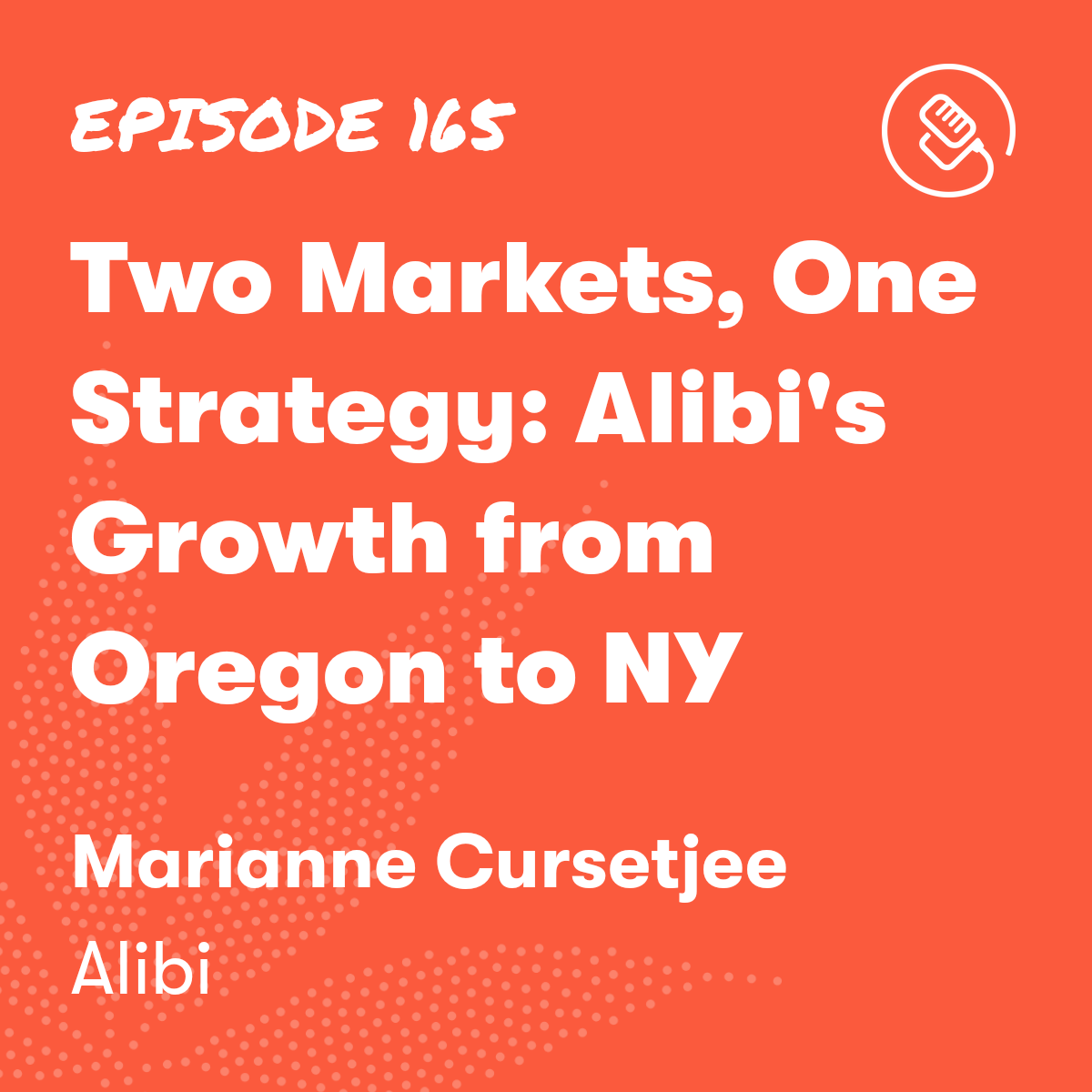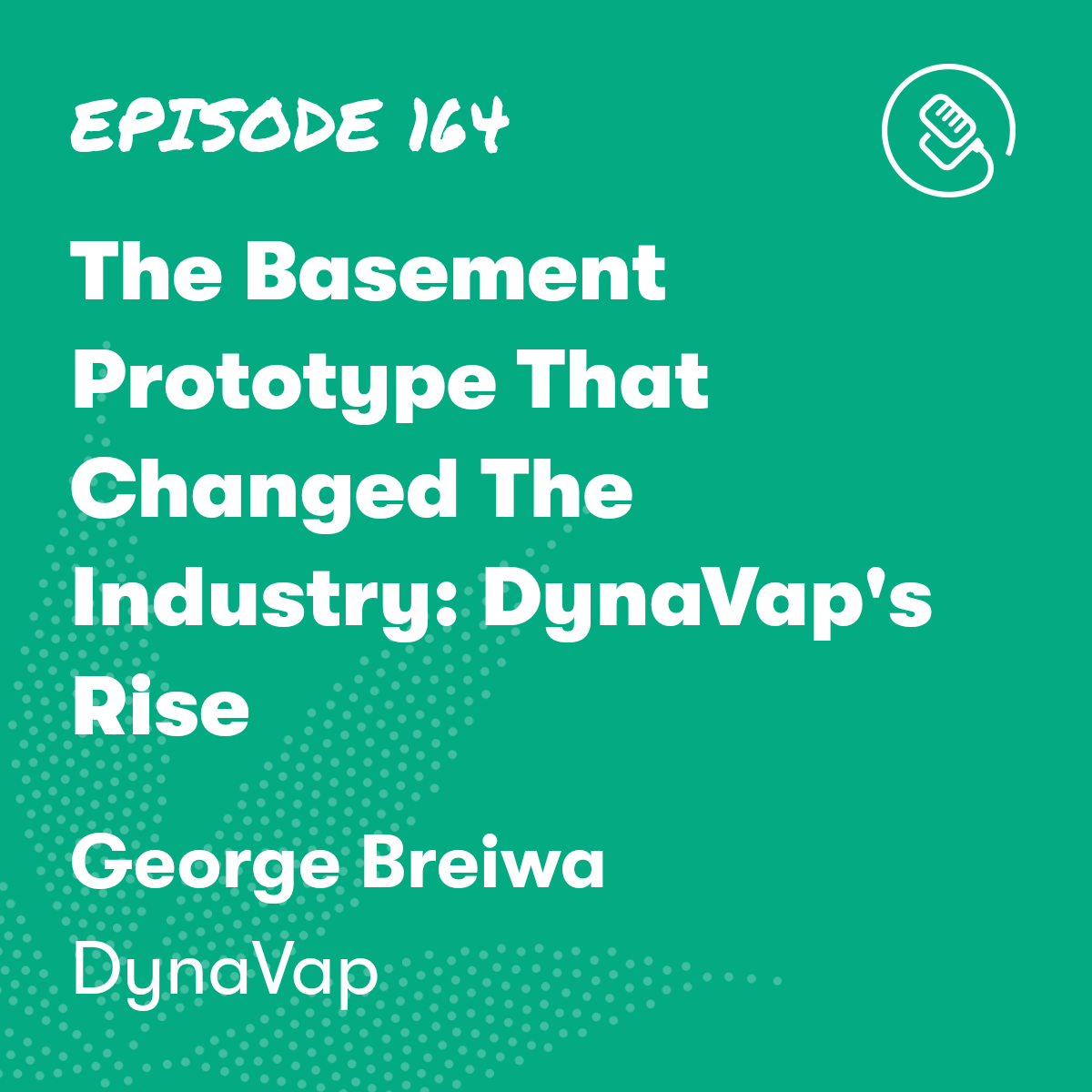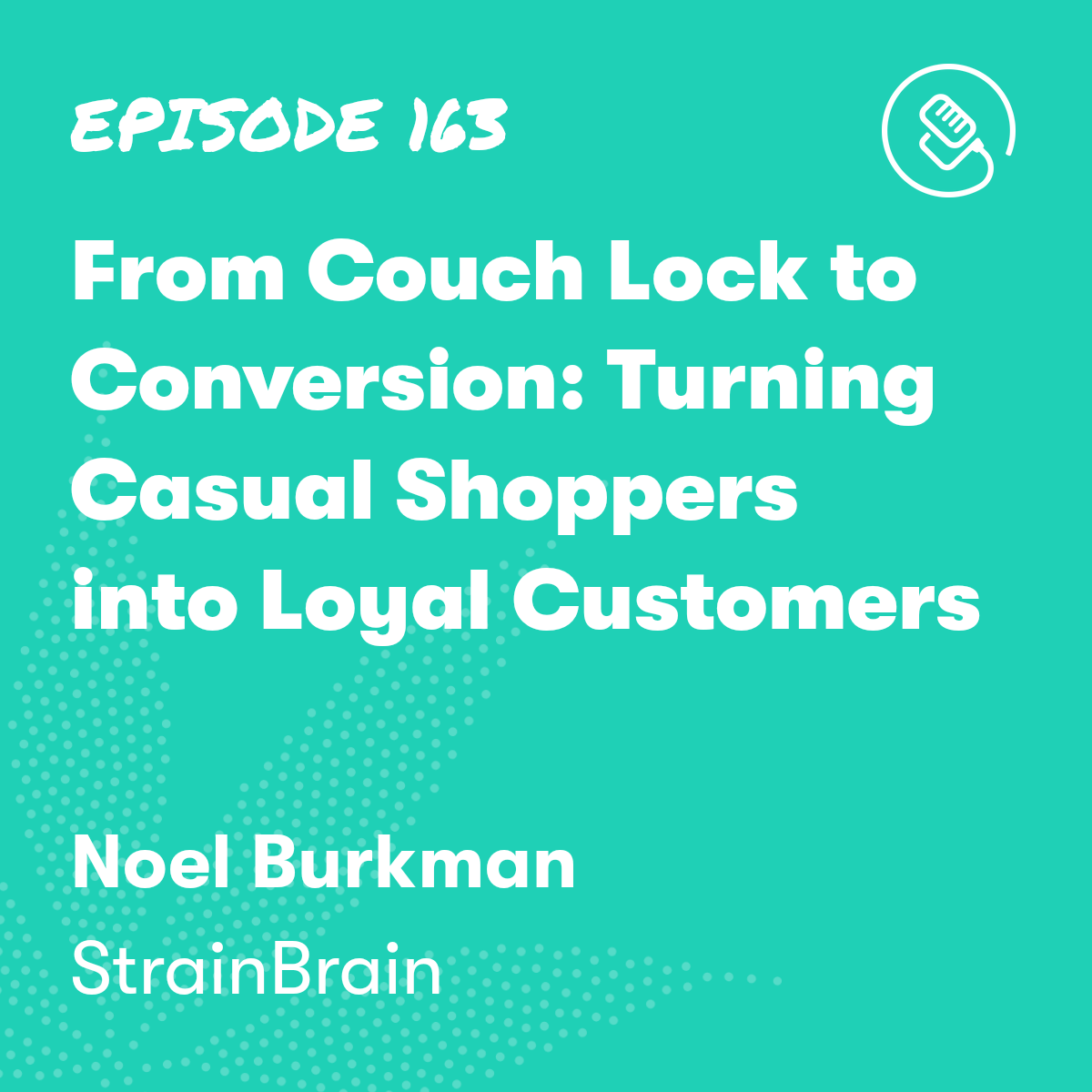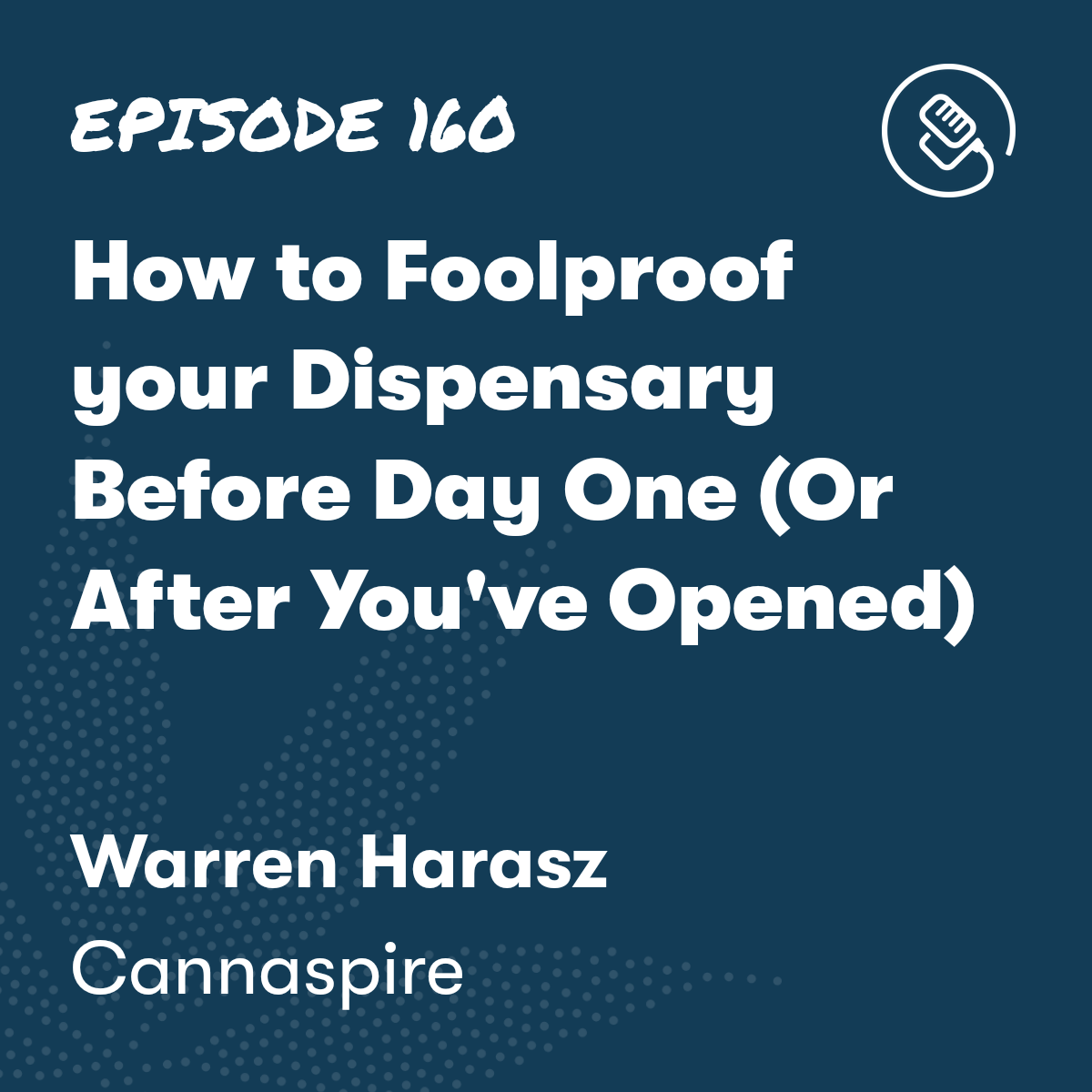

Decoding Cannabis Accounting with Naomi Granger
Episode Description

Episode Transcript
Tom Mulhern: Before we jump into the show. I just wanna welcome you all here to the Kaya Cast podcast, and just remind you to subscribe to our show. On your favorite podcast platform, and you could get new episodes of the show every week and check out our brand new website, kayacast.fm, where you can download episodes of the podcast, find links from our interviews and just find out more about what we're doing here.
Today, we have an amazing conversation with Naomi Granger, from the National Association of Cannabis Accounting and Tax Professionals. And Naomi is a tremendous leader in the cannabis industry. When it comes to accounting and taxes, she just knows everything. She's got so many great insight. For cannabis retailers and, she really unpacks what you need to know to open a cannabis retail store.
And if you already have a cannabis retail store, a dispensary or cultivation, what you need to be aware of and really who you need to surround yourself with to have a successful company that is also staying compliant. And Naomi just dives right into the conversation. And she's got so many great insights.
So let's jump right into the show.
Tom Mulhern: Naomi Grainger is the only CPA to be featured in the wall street journal for her unique approach, to helping accounting professionals expand their practice, to support the legal cannabis. She's provided support counseling and business development skills to over 600 accounting professionals across the United States.
Naomi entered the industry in 2017 and went from a startup to exceeding 3 million in revenue in just two years. I can't wait to hear some of the insights about how she built her company in just two years, building such a big thing. She'll guide. To your own solid revenue gains in the highly regulated cannabis industry with a strong foothold in the market.
Naomi is the founder of the National Association of Cannabis Accounting and Tax Professionals. And. NATCAT exists to standardize bookkeeping, accounting, and tax support for the cannabis businesses. They take the scary out of the industry for accountants and financial service providers and offer straightforward, accurate systems to help cannabis companies stay compliant.
So Naomi, welcome to the podcast. Thanks so much for being here.
Naomi Granger: Thank you so much for having me. I'm so excited about this conversation.
Tom Mulhern: Yeah, well, It's great to have someone who can really speak into one of the most confusing aspects of running a cannabis business, from our conversations with people across the country, when it comes to banking and taxes and everything, there's so much confusion. So I'm really looking forward to sitting down and chatting through some of that.
Naomi Granger: Yeah. And those are the two they're, it's the most confusing thing, but if you don't have your finances, correct. And if you're not compliant, then you're not gonna have a business. So it's important.
Tom Mulhern: Naomi, I wanna start off by asking you, how did you get involved in cannabis and what were you doing before that?
Naomi Granger: I started in public and in corporate accounting. And so I've been an accountant for over 15 years now. And back then, I really wanted a remote business. I really wanted to be able to work from anywhere. This was. Prior to COVID. I read, Jim, Tim Ferriss' four hour work week, and I just had that in the back of my head that I am going to work remotely and travel and all those things.
And I just didn't see it happening in my corporate role, working from an office or a cubicle. I only knew accounting in somebody's office. . And then I came across a training that taught me how to be a remote accountant, because I knew accounting like the back of my hand, but I just didn't know how to market myself.
I didn't know how to build a remote business. And so this training got me over. Over the loop and I figured out, okay, this is how I can find clients. And then one of the aspects of that training was pick a niche and become an expert in one niche to really scale your business. And so I started trying different niches.
I worked with professional athletes. I worked with real estate agents and different real estate brokerage firms. And then I learned. About the cannabis nation. So this was back in 2017 while it was, still very young. It's still very young, but back then, we only had, I think, 20 medical states and maybe six or six to eight adult use.
And in that year Las Vegas went adult use and then 2000 January, 2018. California went adult use and it just over the last four years just really took off from there. So I learned about the cannabis industry and I started digging into it and it really felt like something that I could dig my teeth into.
I really love learning. And I didn't wanna get into a niche where I felt like I was doing the same thing over and over and with cannabis and all the different verticals and all the different regulations and how all the states are so different. I knew that this was something that I can spend some time in really developed my craft and really learned something new.
And so I've joined the cannabis industry and I haven't looked back since then.
Tom Mulhern: It is such like an exciting industry. I'm a bit newer in cannabis myself. So you're kind of, you're the pro you can, you can gimme some good insights. When you were exploring those niches, did you work with like professional athletes and some of these others, or was it more just kind of like learning and exploring?
Naomi Granger: So I had conversations with some of these others. I marketed to them, some of them, we were exploring. Some type of relationships, some type of professional relationship. But I ended up after speaking to them and seeing what their pain points were and what their needs were. It wasn't really something that really excited me.
It wasn't something that I wanted to do. And so I just. Kept moving. And I was beating myself up cuz I was like, just pick something and go, but I really wasn't passionate about it. But then once I got into the cannabis niche and I started talking to cannabis business owners, I just fell in love from the beginning.
I knew it was something that I really wanted to grow in and I really wanted to be able to help. I just loved every single aspect of it. I loved the social equity component of it. I loved the, regulations point. I just loved everything about it.
Tom Mulhern: And Then how did you transition from that into the work you're doing at NACAT even looking at your business growth, from a startup to exceeding 3 million in revenue in just two years, what was that transition like?
Naomi Granger: When I first started, I was working with dozens and dozens of cannabis operators and I was helping them with their accounting records and getting their books straight. And then I started getting accountants and bookkeepers coming to me because they wanted to enter the industry. But they didn't understand what they didn't know what they didn't know.
And they wanted some training and guidance and work papers on how to actually enter this niche and not screw it up or, ruin their reputation or ruin their license and things like that. So I started to provide educational support to these accountants. And I knew from my past I was figuring this out.
It took about two years for me to land on what I'm doing now. I just taking online courses, trying my hat at different businesses came across accounting. And during those two years, I took so many online courses and I knew that there was a lot of money to be made in that type of education.
And so then I developed an online course to start teaching accountants, everything that I knew. And that's when you get into the hundreds of accountants who are coming to you, that's when you get into a million dollar business at that point.
Tom Mulhern: I know I've read Tim Ferris too. And I like when you read books like that, that are so inspiring, especially the four hour work week. You're like, what am I doing in this nine to five? And you just wanna start something. So that's encouraging to hear how you really went out and went after it.
Let's talk about the big question that a lot of dispensary owners have, and then we can go beyond that. But what did dispensary owners need to know about 280E that's a huge issue. And I know that for you you've talked about it a lot. You've trained accountants in it, but for a dispensary owner, what do they need to know?.
Naomi Granger: First of all, we need to take a step back and understand taxes. So there. Income taxes and income taxes come on the federal level as well as the state and local level. And that's something that you file on an annual basis, your income tax returns, but then you also have your state sales and excise tax and local taxes.
And there's all these other payroll taxes, unemployment taxes, there's all these other taxes that you also have to file. And some of those you have to. Regularly like monthly, like those state excise taxes are a monthly filing that if you don't do that, then you're at risk of losing your license from the state and you won't even really get to the income tax level.
So 280E is a federal tax code that says that no deductions or credits are allowed if you're in any business. Consists of trafficking, a controlled substance, which cannabis is a schedule one controlled substance. And so that means that you can't take any deductions. You can't take any credits on the federal level.
So you have your federal taxes, federal income taxes. You also have your state income taxes. Some states follow federal. So that means you can't take these types of deductions at the state level either. And some states do not, and they allow state legal cannabis operators to take these deductions. Number one, you need to have an accountant in place who understands this.
Who understands your state and is making sure that you're taking the proper deductions where you need to take those deductions. And then number two. So 280E is the code that says you can't take these deductions. However, you need an accountant who understands the IRC 471-3, for dispensaries. 471-11 for cultivation. So when you're looking at dispensaries 471-3, pretty much says the only cost you can take. So you can't take any deductions are credits, but you can take your cost of good sold. 471-3 says the only cost you can take is the cost of acquiring the product. So that's pretty much your wholesale cost for the products that you're selling, plus any related transport or transportation of that product to get it to your store.
And that's it. That's where it stops for dispensaries with cultivation 471-11 goes into a little bit more detail. You're allowed to take some production cost the cost of growing the product cost of labor cost some of your utilities and rent. On the space that you use to grow that product.
And if you're manufacturing the product, you have to be actually physically changing the component of the plant in order to be able to take these production costs. And so if you are a dispensary, you need to make sure that your accountant understands 471-3 and understands which costs they can allocate to costs of good sold to make sure that you're getting the best deductions.
You should have an accountant as well as a tax CPA and I always recommend, don't try to find that one person who can just do it all, always have those separate, because cannabis is so specialized. You wanna make sure that you have a person who really understands the tax code separate from that person who's in the details of your day to day operations and your books and records.
The business owner and make sure that that's something that you can tolerate, because this is a new code that was introduced back in 2017 with Donald Trump's tax cuts and jobs act. And so it's something that has not been tested in the court.
So we don't have a court case that says, Hey, this dispensary over here used 471-C. They were able to use it effectively based on this tax law, but there are dispensaries and I've spoken to some tax attorneys, cannabis tax attorneys. Who've been able to have clients who have been audited and they've been able to get through their audit. They didn't go to court, but they settled the audit and they did use 471-C without having any adjustments for 471-C. So it's something that we're seeing is pretty promising. It allows dispensaries to take a lot more expenses because they're not able to take as many as producers are.
So that's something to look into and make sure that your accountant and your tax preparers a aware another thing though. As accountants and as tax professionals, we're extremely conservative. So sometimes your tax prepare, won't even touch it and say, Hey, I'm I don't, there's no tax court cases.
It's not guaranteed. I'm not even touching it. I don't wanna risk it. So you have to make sure that you have a tax professional who is familiar with the code and who is willing to take that with you and apply that to your tax return.
Tom Mulhern: How can a cultivator or dispensary owner be sure that their accountant knows what they're talking about? Like they may know taxes, but like you're saying it's so specialized.
So is there a way to confirm that they're trained in cannabis or is there a national directory or how can they confirm that.
Naomi Granger: So with my association, the National Association of Cannabis, Accounting and Tax Professionals, we're actually in the process of uploading our database of accountants publicly to the website. You can, as a business owner, come to our website and click through, you can see which accountants we actually have certified accountants.
Who've gone through training to learn this industry as well as just members. We are providing education and training multiple times during the month from different experts from. People who are relevant in the industry from insurance providers to tax attorneys, to you name it our accountants are getting that type of training.
So that's one place you can go, but I would just ask that accountant are you getting ongoing training and support because it's not enough to just say, Hey yeah, I took this course last month, or last year they have to be getting ongoing. Cause this industry is constantly changing and they need to be up to speed.
Anything new that's coming out. As new states come on board. As new laws come out, we have to constantly be getting educated. So either make sure that I, when you're hiring them, ask if they're doing that. And if they're not, and you still wanna hire this person, I would recommend the business owner help them join one of these organizations and make sure that their accountant is a part of this organization, or even the business owner themselves be, can become a part of these organizations because the trading and education that we're getting from a tax attorney is something that a business owner can take.
And. Apply and ask, Hey, ask this of your tax professional, ask this of your accounting professional. Hey, are you familiar with this? And if not, you might wanna go out and find somebody else. And you, it doesn't mean that you have to fire your entire staff, but you might need to bring in a specialist who can help train your staff or help be a consultant and just implement some of the more complex pieces of the puzzle and help make sure that you're in compliance and that you're getting the best tax deduct.
Tom Mulhern: You know, We talked about two a, but what other big issues with regarding taxes and accounting should dispensaries be aware of? We talked about, local and federal taxes, but are there anything else that they need to be really aware of? And that can be a big problem if they don't address it.
Naomi Granger: Yeah, absolutely. So another thing that business owners need to have in place is their accountant needs to have a cash management, complete cash management system cash, and inventory controls are the first thing that should be put in place. And those are the more valuable assets when it comes to cannabis.
There's high risk for diversions of cash slipping into somebody's pockets and walking out the door product, walking out the door, slipping into the black market. All those types of things are a huge risk for cannabis operators. And unfortunately, because of the banking concerns and different things like that.
And as well as the software concerns, it's. Cash is an issue. And so if you're not banked, then you are taking cash transactions. You might have a vault. And you have your bud tenders in there and maybe your store manager, if you're not physically there counting this cash and putting in the vault and allocating some to payroll, allocating some to rent, paying invoices in cash, and a lot of that without proper visibility.
Can get lost in the shuffle. And so you need an accountant to come in to help you understand, okay, this is what our daily cash logs look like. This is how we monitor all the ins and out of that cash to make sure that everything is accounted for and that nothing is slipping out the door. And then this is how we get you banked.
And this is how we safely transport your cash. So even though you're banked, you're still, you still have to take a lot of cash transactions because still credit cards are illegal. So you're not taking credit card transactions. You may have a debit terminal. You may be able to take debit card but still you're gonna have a lot of cash.
So how to safely transport that cash to the banks, as well as a lot of the taxing authorities, the state taxing authorities, won't let you, even if you're banked in that state. They won't let you pay your taxes via ACH or debit card. You have to physically take a check or cash to that taxing authority.
So how to safely transport those. So cash is one thing that needs to be put in place and then inventory controls need to be put in place, and we need to make sure that your inventory is matching Metrc or BioTrack or whatever the seed to sell track and trace system is. There's a lot of errors between.
Transferring that product. If you're a dispensary from the cultivation into your dispensaries POS point of sale system, so that transfer needs to be done properly. And then from the POS system, your accountant needs to understand how to pull that information into the accounting record so that they can do your accounting properly and have the numbers accurately reflected in your accounting records.
And so inventory. From the Metrc system into the POS system, as well as inventory counts, you can do daily, weekly. I wouldn't do any longer than weekly counts and that can be cycled counts. So you can do either daily counts of 10 weekly counts of like maybe one product type or one product category and doing each week doing a different product category.
And the idea is over the one month period. You've counted everything, but making sure that it's matching because the regulators come quarterly at minimum, but maybe even monthly. And they, their source of truth is Metrc. So if they walk into your
dispensary and they pull a Metrc report and it says you should have 20 items of this and 50 items of that. They're gonna say, Hey, where's your 20 items. And if you don't have what Metrc says, then you're not gonna be in compliance. And at that point you are out of compliance. They can either. Issue a fine some type of penalty, give you a warning depending on the state, depending on their process, shut you down for a couple of days until you're back in compliance.
There's a lot of things that can happen. And Metrc is a state run software and there are a lot of POS systems that have a direct feed in and out of Metrc, but it's. Perfect. And so there needs to be some type of monitoring there to make sure that's coming O over properly and that's monitored.
And that if anything happens, spoilage, shrinkage, diversions, whatever happens, everything is properly recorded and reflected into that system. And so make sure that your accountant understands that as well, but cash and inventory are those two places that you need to have strong procedures in place to make sure that stuff is being accounted for.
Tom Mulhern: You actually teach a course, you're working on a course, on cash and cannabis. And so hopefully people can check that out if they wanna learn more. What advice would you give to a dispensary regarding banking? How do they get started? It's so different from state to state, but is there any tips or advice that you'd give, cuz I know that's such a struggle for so many different dispensaries and cultivators.
Naomi Granger: Yeah, absolutely. So there are many state run banks credit unions that will bank cannabis. So I would look for those types of credit unions in your state and reach out to them and then. Just get their talk to one of the representatives and get the information directly from them on what's needed to open your bank account.
I know with some banks, it could take upwards of eight months to get your bank account open. So I would start those conversations as soon as. Possible even before your license, some banks won't even touch you unless you're licensed. Some banks will allow you to start the process and get the bank opened even before your license is approved.
So reach out to them get all of the information that you need from them, and then make sure that you have all of your paperwork in order. And the reason why it's so difficult with banking and cannabis is because the banks have a lot more compliance. Requirements that they have to do for these particular types of businesses.
So there's a lot more paperwork. There's a lot more manual process, especially for dealing with a credit union. They have a lot more of a manual process. So make sure that you have like background checks and financial statements and all that stuff in place in order to be ready for that application.
And then once you are banked, there's still additional. Work that's involved. And so that's another thing that comes from having an accountant who's trained and understands cannabis is they have to understand that these banks have validations and requirements that they require monthly financials to be sent to the bank.
And the bank reviews your deposits against your financials to ensure that it looks reasonable and nothing, you're not, nothing is slipping out the door and all those things. So your accountant needs to understand what are these requirements and they need to make sure that they're sending that out timely because some of these banks have huge fees.
If it's late and then on top of those fees, if it's late and then, not ever provided in their timeframe, you'll get your bank account shut down. So now you've, it's taken you eight months to get this bank account open, and then if you're not maintaining the compliance, you can, you're at risk of getting your bank account shut down.
So make sure that your accountant understands all of these requirements for your banking.
Tom Mulhern: So you're saying even before you get the license set up banking. It starts from that early that you need to start thinking about your banking and your accountant and your taxes and everything.
Naomi Granger: Yeah, absolutely. Because, and what we're seeing often is a lot of the books and records are incomplete for business owners, because during the startup process, they are using their own personal bank account or a bank account of another business that's not related or they're getting friends and family loans and they're buying all these assets and making rent payments and all this stuff and then it's never run through their bank account.
So then when the accountant gets to the books and. They're like, oh that never happened. And they're not recording that they have a hundred thousand dollars worth of fixed assets. You can walk into the dispensary or the cultivation and see all these lights and trays and all these things that you're like, Hey, I don't see any of this on the books and records. And then as soon as the cannabis conversation came up, that bank shut them down. And so that record, those records are lost and then they opened another one that one got shut down. So we're seeing all this confusion.
And so at the onset as accountants we're coming in and there's just huge cleanup work that's needed because things weren't done right. From the beginning.
Tom Mulhern: What do you see as the future for cannabis regarding banking and taxes and compliance accounting do you see a bright future or do you see, you know, things on the horizon?
Naomi Granger: Unfortunately I feel like we have a long road ahead of us. I don't see anything happening fast. So with banking and with federal legalization, like there's a bunch of bills that are out there that have been gone through the house sitting on the Senate floor and never passing. And we're getting, all excited about these bills, but they're having a hard time passing the Senate.
And so until we start seeing some movement there, it's good that we're putting those bills out. But until we start seeing something being passed, I think we still have a long road ahead of us. The best option would be that cannabis is descheduled.
So from a schedule one down to below. Schedule, five or something, just descheduled from one or two, and that would help with the 280E issues. And it would also help with the banking issues. But until that happens, even with there's a safe banking bill out there that even if that is passed, You still won't be able to walk into the major banks and open a cannabis bank account because even with that bill passed that bill just gives banks a little bit more comfort to bank cannabis.
And so it relaxes some of the rules and requirements and it helps them feel safer that they won't lose access to banking other businesses, or they won't be at risk for different types of fines and penalties. And it also may open up the doors for lending to cannabis businesses from banks.
But that's it, you're not gonna be able to use credit cards at your dispensary. You're not gonna be able to go into a major bank and open a bank account until we actually become descheduled.
Tom Mulhern: What are some of the common mistakes that dispensaries are making regarding some of this compliance and their taxes, have you seen some just glaring mistakes over and . Over again that people are making.
Naomi Granger: The main issue is just not understanding the industry. It's not necessarily the dispensary owners who are making these mistakes. It's the accountant that they're hiring. That's not familiar with the industry. And so some of the mistakes is they may come in and they may be using an incorrect chart of accounts, which is just your, where the, your books and records, the accounts that your transactions land in on your accounting records.
A lot of times the account, the accountant will come in and just pick, Hey, I'll just use the chart of accounts for a farm, or I'll just use the chart of accounts for a retail store. And it doesn't really fit the mold for a cannabis operation because a cannabis operation has a lot more cost of good sold accounts.
And it has different types of allocations and different things that it needs to inventory different types of inventory accounts that needs to be managed. And so when the accountant comes in, And they're, they don't have the proper chart of accounts, then it's almost like garbage in, garbage out. So the books that come out of those is not gonna be cannabis specific.
And when you're filing taxes on that, you're not gonna get the best outcome with your tax return. You may be overpaying in taxes. And then not really understanding the Regulations.
Properly budgeting for your annual license renewal. I know in the state of New York, the license renewal for cultivation is upwards of $200,000 or $250,000 for every single year. So if you haven't. Budgeted for that all of a sudden you get this bill, you may not be able to survive with that.
I know with some states like the state of Massachusetts, some of the local taxes, there's like a 3% tax on your top line revenue. So whatever you made, they're charging in extra 3% at the end of the year to renew your license and just not understanding this random tax. Then you're not gonna properly budget for that.
And that could put you out of business. Not understanding how cannabis is taxed. Cannabis is taxed in three different ways. They can be taxed for cultivation. They can be taxed based on the potency. So the THC level for that product, they can be taxed based on the weight of the product.
And then they're also taxed based on the sales price of that product. And so there's a lot of different ways to look at it. And if the accountant comes in and doesn't really understand that and just ignores it or, and doesn't do it, then you're not gonna be in compliance, not understanding the seed to sale, track and trace system and how that works as accountants, you have to have a cannabis license in order to even get access
to Metrc or BioTrack, the seed to sell track and trace systems. And so an accountant, it has no understanding of this system and they may not even consider it when doing your sales tax and doing your different your inventory accounts. But that is the source of truth for the regulator. If what they're doing, doesn't match that, then you're gonna have a problem.
Tom Mulhern: And really starting with a healthy foundation for your business is probably so key. And so, for a dispensary owner that is, you know, in maybe a state where it's just opened up and they're wanting to, you know, get into the business. What's one tip that you would have for a dispensary owner wanting to first get in.
And then what's another tip that you would have for someone wanting to grow their business.
Naomi Granger: So getting in, I would make sure that you surround yourself. Professionals who are, who understand cannabis.
Because a lot of these business owners are getting bad advice from attorneys and their accounting professionals, even though they've paid a lot of money to make sure that. They're getting the expert advice that they're looking for. A lot of times, they're not getting that type of advice.
So make sure that, that person has a background in cannabis and understands your industry and make sure you're surrounding yourself with the correct. Professional service providers to make sure that they're walking you through the licensure process that they're giving you the proper advice that they're understanding your budgets and giving you proper budgets and helping you with all those giving you the advice that you need for your build out and different things like that.
And for those of you who want to grow You just need to understand the industry and understand how it works. So in a brand new market like New York, they just pass their regs. It's gonna take still a couple of months before their first sale, because now that their regs are passed, they need to put seeds in the ground.
Those seeds need to grow. They need to harvest them. And then once that's happened, which is a 60 to 90 day process, they can transport those to the dispensaries and then they can have a final sale. At the very beginning stages, you're not gonna really have you're going to every, everybody is gonna sell everything.
So every single cultivation, whoever is up first, they're gonna, they're gonna sell out. They're gonna have pre-orders they're gonna, everything is gonna sell. And then as the dispensary, you can only buy from whoever's. Harvest is ready. So you don't really have much of a decision making process at that time.
So at the startup, everything's just gonna sell, fly off the shelves, but then as it matures, then you need to understand what happens as it matures. So now that we have more cultivation facilities available, And we have more options. Now we have to start thinking about our inventory strategy and what do our customers really want?
Where can we make our best buying decisions and make sure that we put the products on the shelves that are going to actually sell within our store based on our demographic. So that goes down to you starting to track your key performance indicators for inventory for customer retention, as well as your employee key performance indicators.
Who's selling what by hour, who's doing the best sales. If you need to do any more product knowledge, there's just a lot of different key performance indicators that you can look at. And within my training, I have a training called calculating cannabis. We actually deep dive into 12 key performance indicators for retail stores to help you.
Understand how to grow. And so that's on the retail side, but then from the dispensary side, what we've seen as the market matures. So at the beginning, everything is flying out the shell off the shelves. You have pre-orders and all those things going on as it matures and as dispensaries have more options.
Now you need to figure out how you're gonna stand out as a premium product. Cannabis is a commodity. And we've seen this in many markets where the commodity price like in Oregon was upwards of $2000, $2300, $2600 a pound. And then it went down to around $700 a pound as the market became more saturated, same thing is happening in the state of Nevada.
And so as the commodity price drops, it's gonna be more difficult for cultivators to demand that higher price, even though they may be a higher quality, a specialty store. So at that point, you need to understand how to start marketing yourself and how to start marketing to your end user.
Even though you're not the dispensary, you've gotta start getting that product knowledge and education out to the end user so that those customers are coming into the dispensary. Asking for your product and then your dispensaries have no other choice than to buy from you. And so that's how I feel like that's how that's, where it's going to evolve into that.
Eventually these growers are going to be marketing to the end users so that they can demand the price that they should be getting for their product.
Tom Mulhern: Well, And understanding those KPIs, whether it's, personnel issues like your staff or whether it's your product, just understanding your business is so key. And I think that's one of the biggest insights from this conversation is that. It is a different business because you have to dive in and know so many things about the product, but also about the industry and everything.
Having professionals like yourself that can help guide people along that journey is so key and so important. So how can our listeners find out more about you and the work you're doing, or maybe some events that you're gonna be at because. I know if I was starting a dispensary, I'd be like, so now how do I get Naomi to kind of sit down with me for, you know, a three hour session so that I can learn, cuz it I, I would leave this being like, there's so much more that I need to learn.
So how can people find out about you?
Naomi Granger: The name of my business is pretty long. So it's an acronym, The National Association of Cannabis, Accounting and Tax Professionals. The website is shortened to nacatpros.org. And then you can also reach me at NACAT Pros on social media or naomi@nacatpros.org.
Is my direct email address, and we can, jump on a call and I can either connect you to an accounting professional. We have hundreds of accounting professionals within our organization who are trained and who are actively seeking the education and training in this industry. So I can connect you with an accountant who can help you with your operations.
And, we can, I can do a quick call to see if there's anything else that we can help you with.
Tom Mulhern: The work you're doing is so important and. You just blew me away by how much you know about it. Like I'm just sitting there like needing to write down notes. So thank you so much for joining us on this episode of the podcast. And I know we're gonna have to have you back because there was, there was so much more that I wanted to, to chat about and thanks again for joining us.
Naomi Granger: Absolutely. And I'll come back anytime because yeah. As I was going into things, I was holding back, I was like, oh, this is too much and this it's just so much information out there.
Tom Mulhern: That's right. We'll save it. We'll save it for the future. So thanks again.
Naomi Granger: okay. Awesome. Thank you.
Tom Mulhern: Again, we want to thank Naomi Grainger from the National Association of Cannabis Accounting and Tax Professionals for sharing those insights with us. There were so many things that cannabis retailers need to be aware of when they're running their businesses and, Knowing your product, knowing the industry, knowing cannabis and the unique industry that you're in is so key.
And so feel free to reach out to Naomi and anyone at NACAT just about what they're doing and to make sure that your business is compliant and going on the right track.
